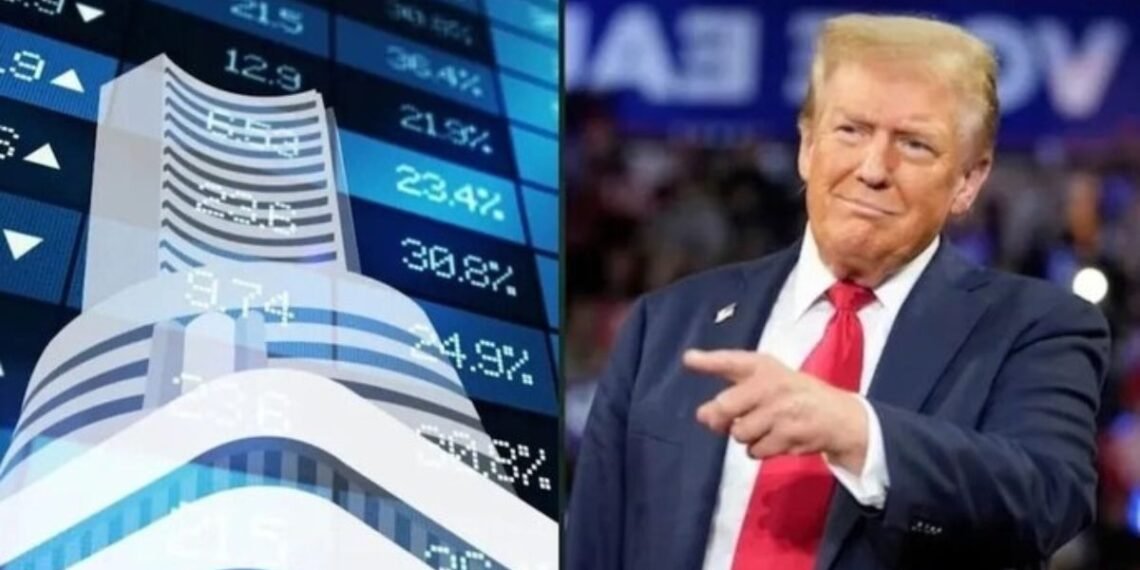The Indian stock market surged in response to Donald Trump’s projected victory in the U.S. Presidential race, with the Sensex climbing over 1,000 points. While market sentiment remains upbeat, analysts are closely watching potential impacts on trade policies, inflation, and foreign investment. Trump’s return could mean a stronger dollar and stricter trade barriers, posing both opportunities and challenges for India’s economy, especially in sectors like IT and pharmaceuticals.
PC Bureau
New Delhi
India’s stock markets cheered Donald Trump’s projected victory in the U.S. Presidential race, with the Sensex surging over 1,000 points and the Nifty climbing nearly 400 points. Market analysts anticipate this upward trend could continue in the coming days, suggesting that Indian equities may have reached a bottom.
Trump’s return to office could bring significant impacts to the Indian economy and domestic markets. Analysts predict increased U.S. spending could fuel inflation, while a stronger dollar and heightened trade barriers might pose challenges.
Also Read: Victory and Vision: Trump’s Rousing Speech Sets New Course for USA
“More than who wins, a clear outcome is what markets have been waiting for,” said Anitha Rangan, Economist at Equirus. “This clarity could benefit India, given the strong trade ties between our countries.” By Wednesday afternoon, the BSE Sensex rose by 682 points (0.86%) to reach 80,159.
Rangan noted that with election uncertainty subsiding, markets may stabilize as focus returns to economic fundamentals, potentially reversing recent FII outflows. Since October 1, foreign investors have sold Indian shares worth over Rs 1 lakh crore. “India’s economic fundamentals remain sound, and as outflows stabilize, a clear election result should support market resilience in the medium to long term,” she added. Rangan emphasized that a delayed U.S. rate-cutting cycle might prompt a similar approach from India’s central bank.
Nitin Aggarwal, Director of Investment Research at Client Associates, highlighted that a Trump-led administration could adopt a protectionist stance, reshaping global trade. Data from the Centre for Monitoring Indian Economy (CMIE) shows India’s exports to the U.S. have nearly doubled over the last decade, reaching $77.53 billion.
Aggarwal warned that Trump’s focus on reducing the U.S. trade deficit could affect India’s pharmaceuticals and IT sectors. Indian generic drug makers may face steeper tariffs, impacting exports to the U.S., while the IT sector could see reduced demand as discretionary spending drops in a more protectionist climate. He also pointed out that a slower U.S. rate-cutting cycle could influence the Reserve Bank of India’s decisions, affecting inflation and investment sentiment domestically.













